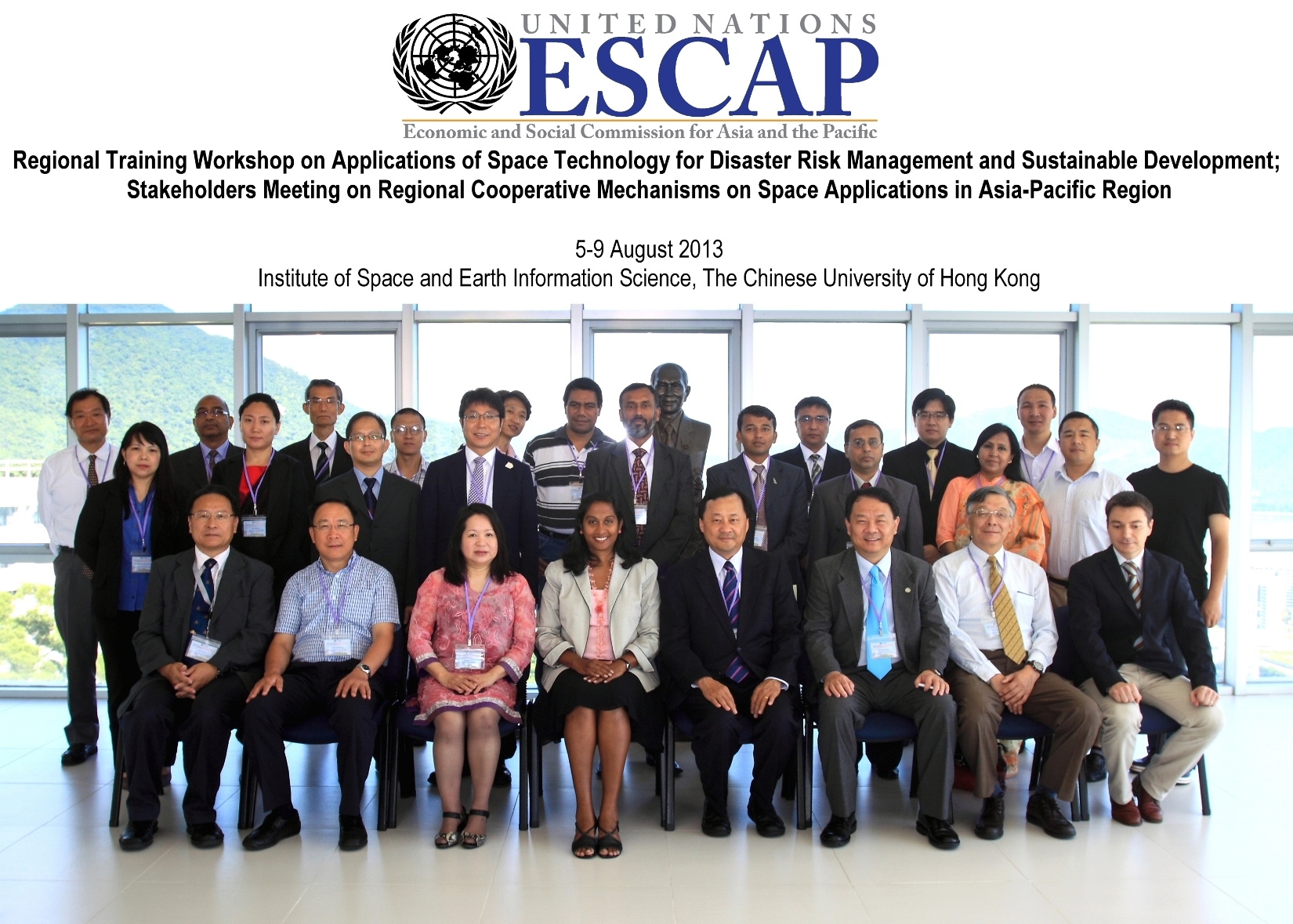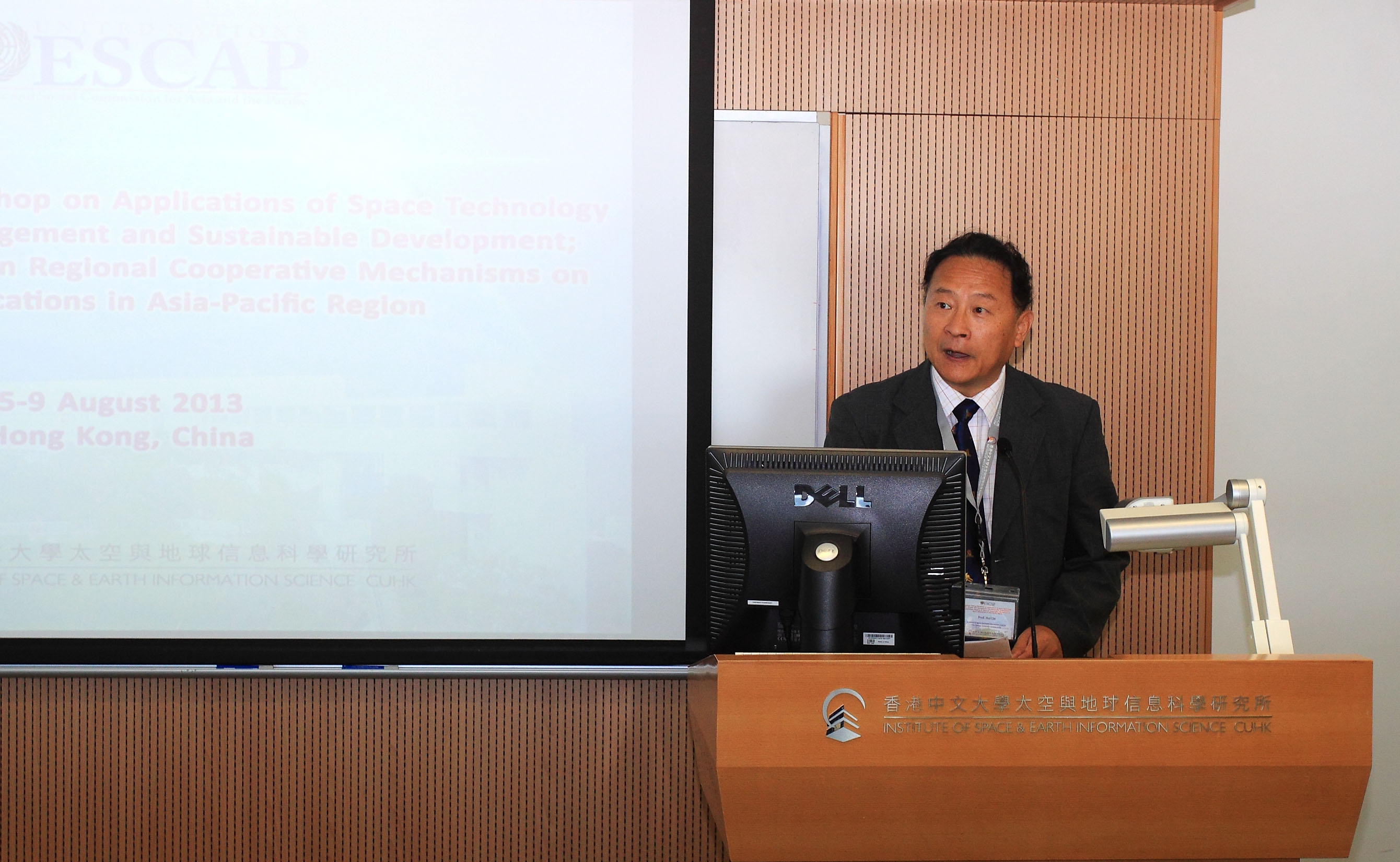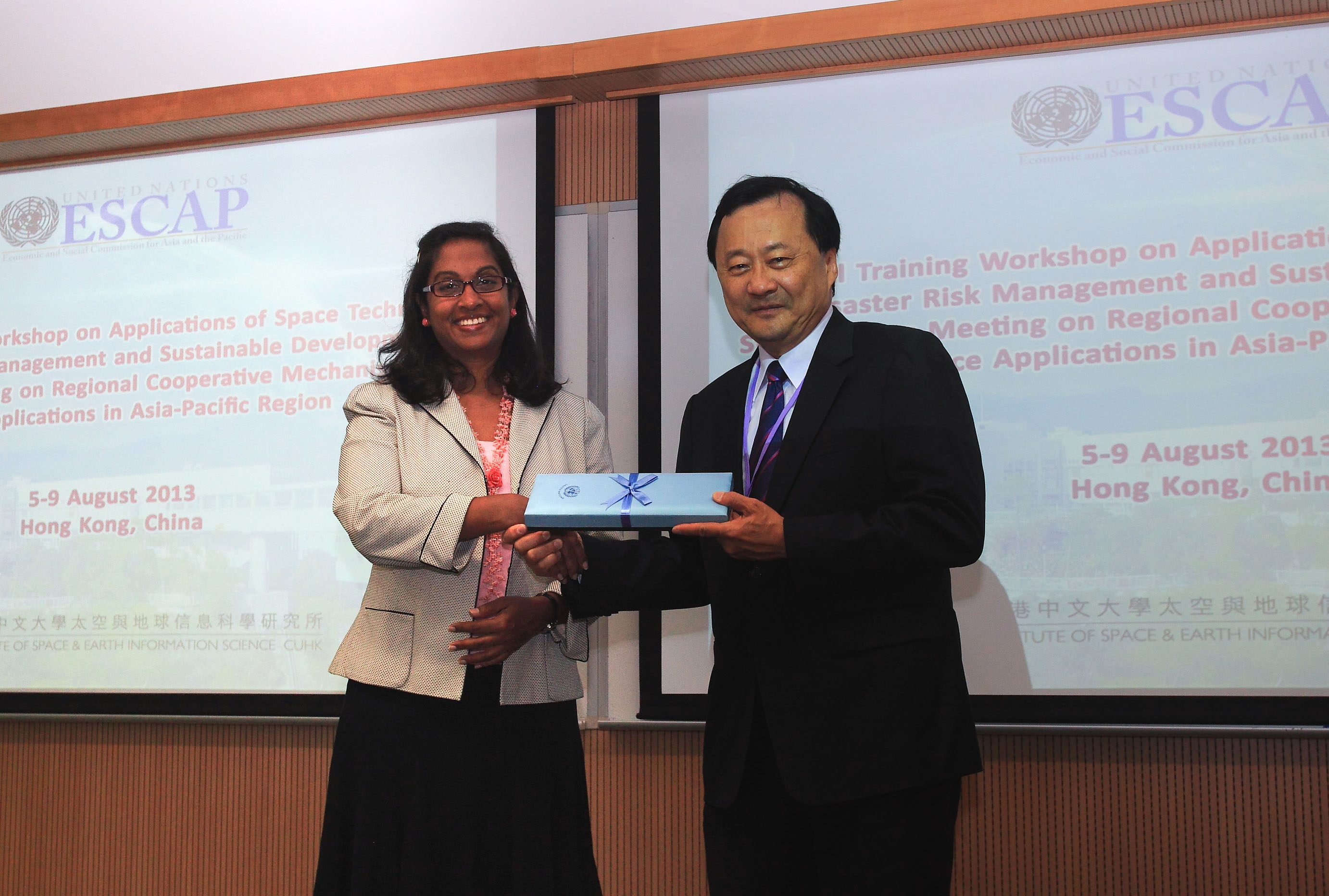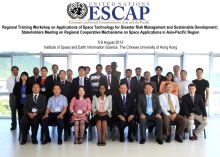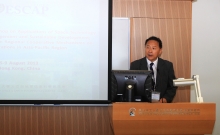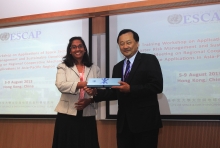CUHK
News Centre
CUHK ISEIS Conducts the UN Regional Training Workshop on Applications of Space Technology for Disaster Risk Management and Sustainable Development
Commissioned by The United Nations Economic and Social Commission for Asia and the Pacific (ESCAP), the Institute of Space and Earth Information Science (ISEIS) of The Chinese University of Hong Kong (CUHK) conducted the United Nations Regional Training Workshop on Applications of Space Technology for Disaster Risk Management and Sustainable Development at CUHK last week. During the period, Stakeholders Meeting on Regional Cooperative Mechanisms on Space Applications in Asia-Pacific Region was also held in ISEIS.
Dr. Shamika SIRIMANNE, Director of Information and Communications Technology and Disaster Risk Reduction Division (IDD) of ESCAP and other IDD officers attended this one-week training workshop and the stakeholders meeting along with officers, scholars, and professionals from mainland China, Japan, South Korea, Mongolia, Vietnam, Bangladesh, Pakistan, Malaysia, Nepal, Philippines, Sri Lanka, and Vanuatu. The training workshop consisted of three parts: 1) to exchange the planning and progresses in participating countries on applicants of satellite and IT in disaster risk management; 2) to introduce advanced satellite remote sensing and GIS technologies; and 3) to understand the further demands and discuss the cooperation plan.
The opening ceremony of the workshop was officiated by Prof. LIN Hui, Director of ISEIS, CUHK. Prof. Benjamin WAH, Chairman of Research Grants Council of HKSAR Government and Provost of CUHK; and Dr. Shamika SIRIMANNE, Director of ESCAP IDD delivered welcome speeches at the ceremony.
Prof. Wah reviewed the role of ISEIS in the last decade as ESCAP local contact point for Satellite Remote Sensing, Geographic Information System (GIS), and Satellite Navigation working group. He expressed the willingness and the capability of CUHK and other universities in Hong Kong for undertaking the responsibility to the international communities. The University would continue to provide strong support to ISEIS for its continual cooperation with the United Nations, ESCAP in particular. Moreover, Prof. Wah also expressed his great appreciation to ESCAP for providing CUHK students the internship programme in ESACP. He believes that the unique opportunity should have broadened students’ horizons and provided them a better understanding on the importance and working mode of international cooperative programmes.
Dr. Sirimanne greatly admired CUHK’s contribution to the United Nations for sending ISEIS students to the internship programme of ESCAP Headquarters in Bangkok. She highly praised the advanced knowledge and their team spirit. Dr. Sirimanne pointed out that their excellent works in IDD impressed the officers of other programmes in ESCAP Headquarters including transport, statistics, energy, environment and sustainable development programmes. The ISEIS students were invited to offer assistance on the development of GIS based information systems. In her speech, Dr. Sirimanne thanked CUHK again for providing excellent educational environment to support this training workshop. She hoped that CUHK would establish a stable international training programme in order to provide long term support to human resource development and the capacity building for least development countries in the Asia and Pacific region.
Established in 1947 with its headquarters in Bangkok, Thailand, ESCAP is the largest regional arm of the United Nations for the Asia-Pacific region. It consists of 53 member states including mainland China, USA, Russia, Japan, India, Australia, Singapore, South Korea, Vietnam,Thailand, Pakistan, and 9 associate members such as Hong Kong and Macao. ISEIS is the non-governmental contact point of the Satellite Remote Sensing, GIS, and Satellite Navigation working group under ESCAP. ISEIS is also the Hong Kong base of the National Remote Sensing Center of China. Sponsored by the Ministry of Science and Technology of China and Innovation Technology Commission of HKSAR government, ISEIS has established the national satellite remote sensing receiving station (Hong Kong Station) and other earth observation facilities, which has provided a unique platform for advanced research and education. ISEIS has attracted excellent scholars and students in the field of remote sensing and GIS from mainland China and overseas.
A group photo of guests and participants of the training workshop. (Front row from left) Prof. Lin Hui, Prof. David Chen, Ms. Betty Chan, Dr. Shamika Sirimanne, Prof. Benjamin Wah, Mr. Wang Keran, Prof. Wu Guoxiang, and Prof. Dan Perissin.


